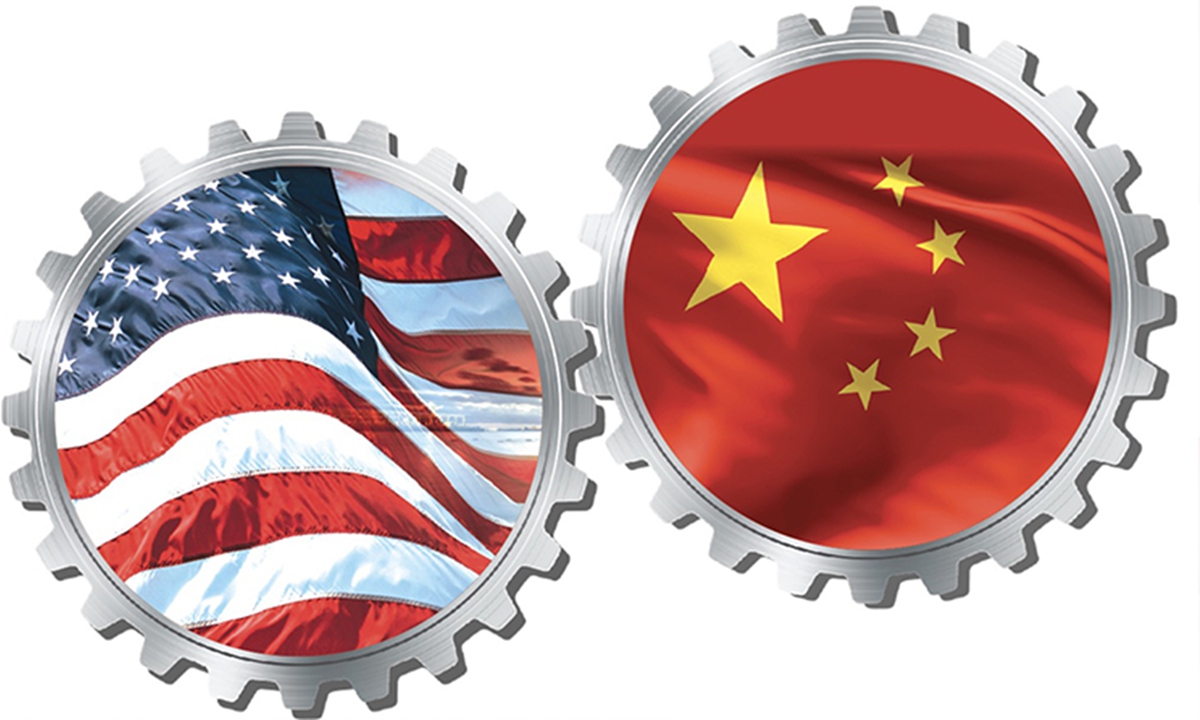
China US
US President Donald Trump held the first official Cabinet meeting of his second term on Wednesday local time. When discussing economic relations with China, he first addressed rumors: "I see so many things saying that we don't want China in this country. That's not right. We want them to invest in the United States… and we'll invest in China." He then told reporters, "We're going to have a good relationship with China."
China has consistently maintained an open and cooperative attitude toward the US. We are pleased to see President Trump send positive signals of moving in the same direction as China. We hope that the US can take practical actions to remove policy barriers and create an open, stable, and non-discriminatory business environment for Chinese enterprises going to the US.
President Trump's above statement presents a nuanced contrast to the "America First Investment Policy" memorandum released by the White House on February 21. Under the guise of ensuring American prosperity and security, the document announced further restrictions on bilateral investments with China, covering several areas, including semiconductors, artificial intelligence, critical infrastructure, and healthcare.
This has caused strong anxiety among enterprises engaged in cross-border business between China and the US, and has also sparked considerable opposition within the US. Previously, the US has imposed numerous unfair and unnecessary restrictions on Chinese investments. For instance, the Committee on Foreign Investment in the United States, led by the US Department of the Treasury, has persistently targeted Chinese companies with "reviews," often halting Chinese investment projects under the pretext of "national security," thereby becoming a major risk for Chinese investments in the US.
An obvious truth is that "what benefits the US" and "what benefits both China and the US" do not stand in opposition to each other. The "concerns" held by some Washington politicians that "mutual benefits for both China and the US will enable China to surpass the US" are unfounded, as the deeply integrated industrial chains between the two countries do not equate to "China taking unilateral advantage" but rather the optimal allocation of resources driven by market rules. When formulating trade and economic policies toward China, the US should not fall into the misguided belief toward "US wins everything, China loses everything." Countless examples have shown that trade wars and tariff battles go against historical trends and economic principles, and there will be no winners.
Perhaps the areas in which President Trump welcomes Chinese investment in the US are not so broad, only limited to sectors like manufacturing that do not involve advanced technology. Because he has expressed "welcome" toward Chinese automakers setting up factories and hiring local workers in states like Michigan during his campaign. However, even if this is the case, China-US cooperation will remain limited, and it will be difficult to provide boost to the US economy and industrial development.
Recently, China's AI company DeepSeek has prompted reflection in Silicon Valley. A young Chinese biotechnology company has developed a drug that outperformed a globally bestselling treatment from a major American pharmaceutical giant in lung cancer trials, drawing media attention in the US. The Wall Street Journal acknowledges that China has moved up the value chain, from manufacturing goods to becoming a more sophisticated hub for innovation.
Should Washington also ask itself two questions? Have years of restrictions truly hindered China's technological progress? And if China and the US, the two tech powerhouses with vast markets, could engage in broader and more advanced cooperation, will it bring greater benefits to the US?
On February 26, the American Chamber of Commerce in South China released data showing that nearly 90 percent of American companies in China are profitable, and member companies plan to significantly increase reinvestment in China over the next three to five years. This is attributed to the fact that in recent years, China's welcoming attitude toward foreign investment has been increasingly reflected in its open policies. At the same time, surveys show that these members' concerns over escalating China-US trade tensions are also rising. If the US wants to make itself the "world's largest investment destination," it should foster a fair, transparent, stable, and predictable business environment for both Chinese and international companies, rather than erecting numerous barriers within the labyrinth of "national security." We welcome President Trump's statement and hope that the US will follow through on its words, translating the latest rational judgment into bold and concrete actions. What defines a "good China-US relationship"? China's approach of adhering to the principles of mutual respect, peaceful coexistence, and win-win cooperation in handling its relationship with the US has never changed.
What the US needs most right now is to abandon its hegemonic mindset and adopt a more rational and pragmatic perspective on China-US relations. It should listen to the genuine calls within the US for cooperation with China and formulate policies that align with the shared interests of businesses and people in both countries, as well as the health of global supply chains. As a major power, the US should provide policy support that matches its status. As the world's two largest economies, the temperature of China-US ties profoundly influences the pulse of the global economy. It is hoped that the US will meet China halfway, striving to build a stable, healthy, and sustainable relationship between the two countries. It will not only benefit both nations but also offer the world a vision of prosperity and stability.




